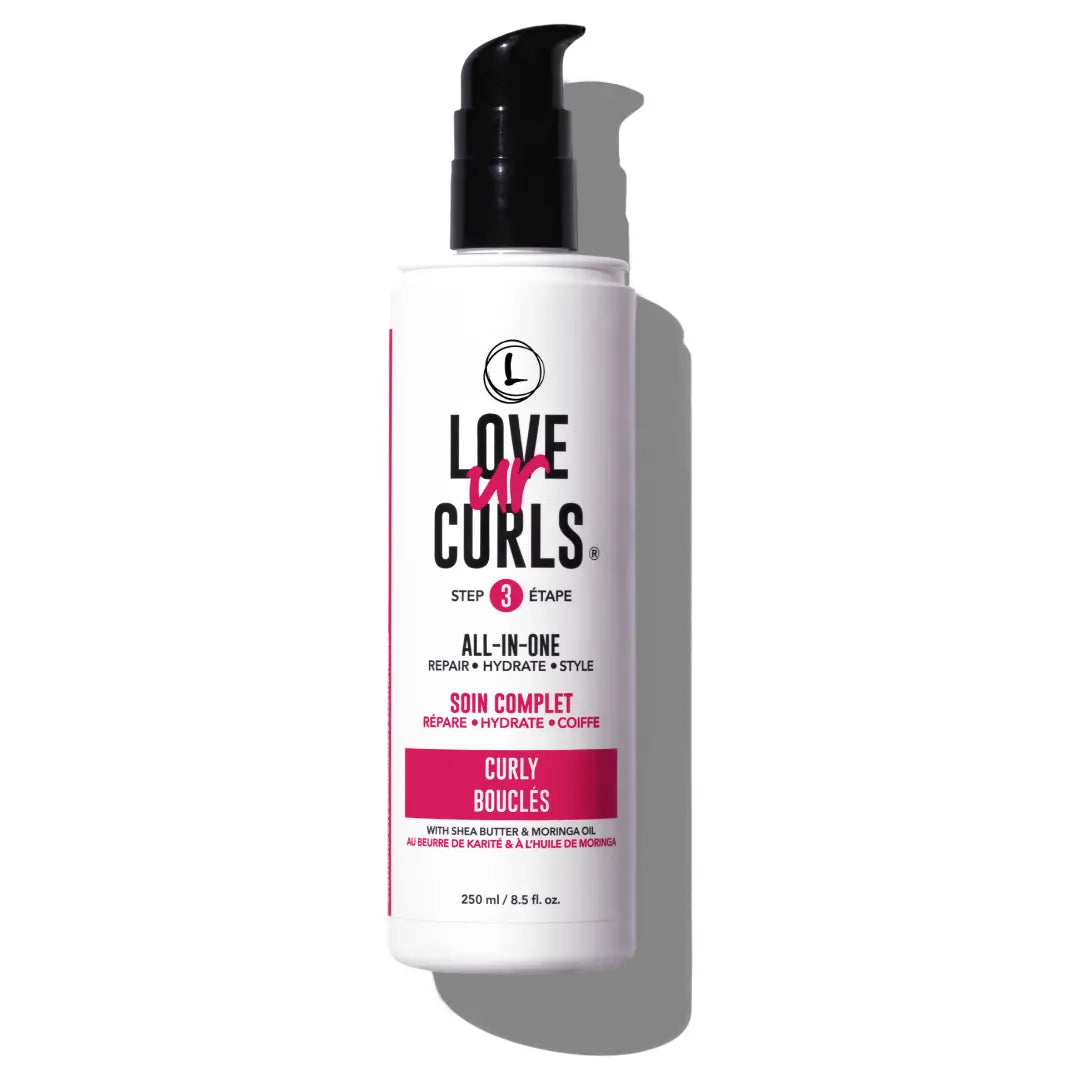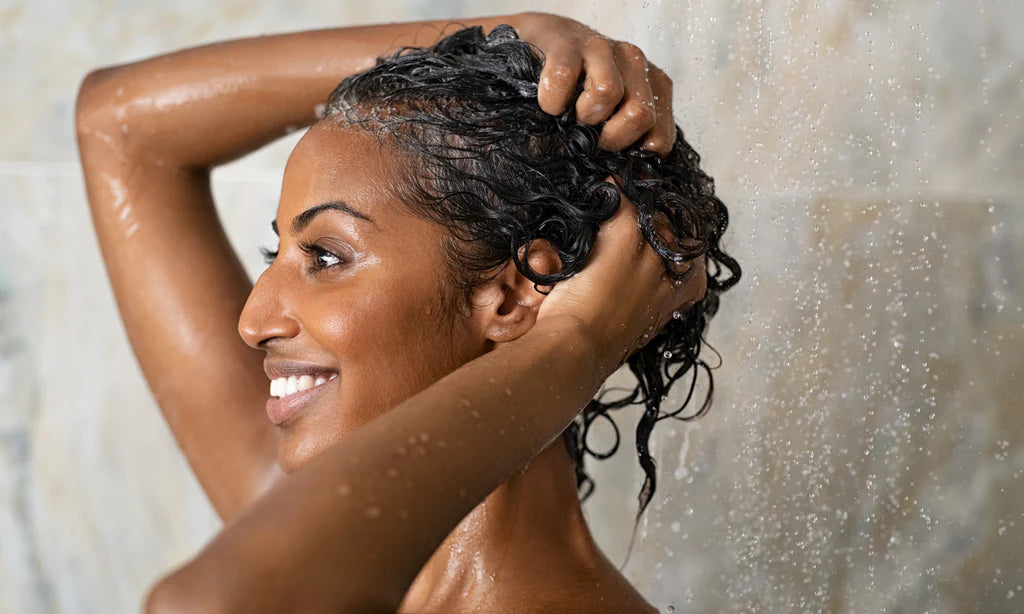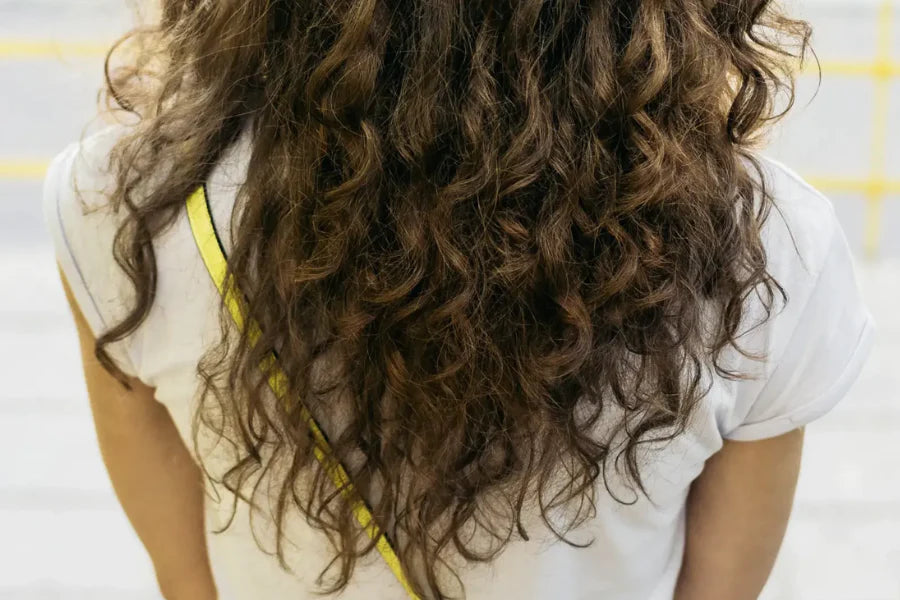
Curlies, you’ve probably heard the word ‘plopping’ before but perhaps you’ve never tried it or you’re unsure if it’s for you. If you’re wondering what the heck plopping is, it’s an easy, no-heat technique for those with loose waves and curls, that can help shorten drying time while adding volume and definition to your locks.
Intrigued? Keep reading to learn how to plop curly hair and what plopping can do for your curls!
The Benefits of Plopping Curly Hair
Plopping is a game-changing method for loose curls and waves that tend to get easily weighed down. For these curl types, the weight of water and moisture in hair will pull the curl pattern down before it's had a chance to dry, causing the resulting waves or curls to remain in a loose, stretched state. Plopping works against this.
Think about what happens to waves and curls when you scrunch them while wet; you encourage the curl pattern to become more compact, making them more defined and bouncy when they’re dry. When you plop curly hair, you’re essentially doing a lot of scrunching. Plopping presses your hair to your head and keeps it there for a period of time, resulting in better definition and volume!

Plopping can also be beneficial for those who want to speed up their drying time. Since curly girls style their hair while wet, there's often a lot of excess water on your curls that you may want to absorb before you air dry or diffuse. Plopping is a great way to do this because it can take away some of that excess moisture without causing frizz. Plus it'll absorb any excess product if you were too heavy-handed with your application!
How to Plop Curly Hair
Like any addition to your hair routine, plopping can take some trial and error until you get your desired results. We’ll cover the basics, and you can make adjustments as you discover what works best for your curl type.

WHAT YOU'LL NEED:
- Either a microfiber towel, cotton T-shirt or a T-shirt towel (like the Love Ur Curls Embroidered T-shirt Towel!) ✨
- Your favorite styling product (may we recommend our All-in-One? 😉)
That’s it!
CAN I USE A REGULAR TOWEL?
The weave and material of regular terry cloth towels make it easy for individual strands of hair to get caught, causing them to separate from each other and create frizz. Instead, opt for a microfiber towel or 100% cotton T-shirt towel.
Microfiber and T-shirt towels don't have the same loopy weave as bath towels; they're made with smaller, smoother fibers that are gentler on hair. If you don't own one or the other, you can always use whatever cotton items you have at home. An old cotton t-shirt will work just fine, or even a pair of cotton pants could do the trick! 😅

 Watch the video here.
Watch the video here.
WHAT TO DO:
- Starting with wet hair, apply product and style as you normally would, making sure your hair is smooth and free of frizz.
- Scrunch each section of hair a few times to encourage your curl pattern to spring up. Then, spread your towel or t-shirt out on a flat surface.
- Gently “plop” your curls onto the towel or t-shirt by bending over and placing your hair in the middle of the towel, starting with your ends first.
- Keep bending toward the towel until the crown of your head touches it and your hair is all scrunched up.
- With your hair still in place, wrap the towel or t-shirt around your head, twisting-up any excess fabric into a tail and folding it towards the back of your neck. Secure the twist by tucking it under the back of the towel.

Is plopping for everyone?
It all comes down to hair type, texture, length and personal preference! As we mentioned above, most people with looser curl patterns will love the plopping method, but if you have a tighter curl pattern (anywhere in the 3C to 4C range) this might not be the best drying method for your curls.
While plopping can cut down on the time it takes to air dry your curls, if you have tight kinks or coils, using this method could lead to more shrinkage. For those with super-tight coils and extreme shrinkage, it could even lead to strands clumping and linking together, forming knots and tangles. Instead, try plopping after you style with twists or braids, while your hair is still wet. It will help reduce the time it takes your curls to dry!
Watch the video below to get the low-down on how to plop curly hair.







